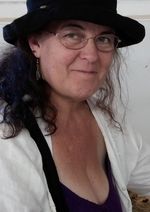What Do We Do Now?

I’ve been carrying a mystifying sadness with me for so long I hardly even question it. It’s not exactly a “hello darkness, my old friend,” kind of sadness, but it’s an awareness that something is really wrong with the world and it seems like hardly anyone is going deep enough to understand the cause.
I just finished reading the book Secrets of the Talking Jaguar by Martin Prechtel, and I felt like the light of the sun had poured into my head as I finished the book. There are so many theories about why the world is so mean and violent, and why things don’t seem to be getting better but few get to the heart of it. I really think Mr. Prechtel’s insights are profound.
Martin Prechtel’s mother was a Native American from Canada, his father was Swiss, and he was raised in a pueblo village in New Mexico. After some wild and hilarious adventures in his youth, he settled in the Guatemalan village of Santiago Antitlan, where he studied under an elderly village shaman called Chiv. Secrets of the Talking Jaguar tells the story of his journey, being initiated as a shaman, and living intimately among the people of that tribe.
In the last chapter of his book, “Epilogue: In the Flimsy Hut of the World – The Indigenosity of the Human Soul”, he gets at something which I’ve been feeling for a long time having to do with why people are violent, and why people are disconnected from the earth and from each other.
Martin Prechtel explains “how shamans have been able to see that the world is a sacred building called The House of the World, and that our own sacred bodies are also called The House of the World.” Like twins. It includes the animals and plants, the weather, everything in the world. By shunning the ancient rituals that kept people close to the earth that fed and clothed them, modernity has ruptured us away from honoring our source. Religions and governments and cultures have further separated us. Nature has become a commodity to use as we please. Little forethought is given before countless endeavors, and humanity is medicating itself at every turn. Suicide is epidemic.
Many people wonder why they’re alive. They struggle to find work, to pay living expenses, and they spend time in fruitless searches for fulfilment. As Martin puts it, “over the last two or three centuries, a heartless culture-crushing mentality has incremented its progress on the earth, devouring all peoples, nature, imagination and spiritual knowledge. Like a big mechanized slug, it has left behind a flat, homogenized streak of civilization wherever it passed.”
This isn't to say that there haven't always been those who decided to make war on others to obtain land, slaves and fortune, but in those cultures where people lived close to the land growing their own food, close to the births and deaths of their people, there was a sense of what is true about life in their bones. Martin Prechtel doesn't pretend the people in the village where he lived didn't suffer, or didn't work hard or weren't poor. But their sense of community and their sharing of what they had gave them a sense of life that many of us have never known.
We need a homecoming of humanity. An enormous awakening, beyond religion or ideologies, that can enable the human race to feel its connection to each other and all things. We need humility, honesty, generosity, and love to solve our separation. We need to learn to be as fair as the sun and rain, the blooming flowers and the singing birds, who have no malice, judgment, or hardness of heart. We do not need a mentality of doom. We have the tools and the hearts to reverse any and all pathways which lead to perdition. Imagine if for one day, all the energy used to harm, destroy or condemn, was used to heal, rebuild and love. We would see ourselves in the midst of a quantam leap which could transform most of the ills of the world in the twinkling of an eye.
Kim lives in Maine, which is lovely, and where she continues her enthusiastic relationship with Art, Music, Nature, Books, Animals, Humor and Trees.


